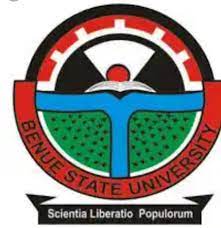COVER
IPPIS: Understanding the Position of ASUU and AGF Ahmed Idris

By Yushau A. Shuaib
The battle of wits between the Federal Government and the Academic Staff Union of Universities (ASUU) over the Integrated Payroll and Personnel Information System (IPPIS) may soon come to an end, with the recent compromise that seems to be close at hand.
Even though the Accountant General of the Federation, Ahmed Idris is being ferociously attacked by the leadership of ASUU over his insistence on the full implementation of the IPPIS across the board, the Office of the Accountant General of the Federation (OAGF), where IPPIS is domiciled, is also responsible for all receipts into and payments from the Federation and Consolidated Accounts.
The IPPIS was introduced in 2007 to provide accurate and reliable data on personnel in the public service, for the purpose of budgeting for recurrent expenditures and other challenges. The scheme is a form of identity system management aimed at providing a centralised database to support personal planning and decision-making, including the automated storage of personnel records to aid staff enrolment and monitoring, as well as to prevent wastage and leakages on the basis of factual personnel records and information.
Some of the features of the IPPIS are the facts that it captures facial images and fingerprints of government employees and stores them in a digitalised data-based library, which can be accessed with authorisation from anywhere.
President Muhammadu Buhari has always been passionate about IPPIS, so much that in his 2020 budget speech, he directed that all Federal Government workers must be enlisted in the scheme.
During a presentation of the Medium Term Expenditure Framework and Fiscal Strategy Paper (MTEF/FSP) in September 2019, the Finance minister, Zainab Shamsuna Ahmed, announced the deadline of October of the same year for all federal ministries, departments and agencies (MDAs) of government to enroll their staff on the IPPIS platform. She insisted that based on a presidential directive, staff members who were not captured on the automated payroll system would not be paid their salaries.
At a meeting with vice-chancellors, registrars and bursars of federal universities at the National Universities Commission Auditorium in Abuja in June 2019, the AGF, Ahmed Idris, told these senior university officials that the centralised payroll would be prepared by individual universities but coordinated through the IPPIS, while the total management of the human resources involved also rests squarely with the universities.
At subsequent meetings with the leadership of university-based unions, including ASUU, NASU, SSANU and NAAT in the same venue, Idris assured that the IPPIS platform would accommodate all financial peculiarities pertaining to university staff, including those involving sabbaticals, visitations, honoraria and other earned allowances. He added that deductions for the National Housing Fund (NHF), National Health Insurance Scheme (NHIS) Check-off and other dues from staff would be remitted to the appropriate accounts when due.
While appealing to them, AGF said the university community, being the bedrock of knowledge production and the centre of reforms that has always striven for probity, transparency and accountability, towards good governance, would contribute tremendously in bringing to bear all such unique qualities in the implementation of IPPIS.
In his remarks during the meetings, the Executive Secretary of the National Universities Commission (NUC) and the host, Professor Abubakar Rasheed said the IPPIS scheme would engender transparency, accountability and probity in government expenditure, as well as centralise the payroll systems that would address challenges affecting the country’s public universities.
The ASUU president, Professor Biodun Ogunyemi, at one of the meetings, expressed the fear that if implemented, IPPIS could erode university autonomy and the powers of University Councils.
Possibly what provoked the anger of lecturers with the AGF was when he allegedly issued a letter dated December 2, 2019, advising vice-chancellors that universities which were not yet enrolled on the IPPIS should do so promptly or face appropriate sanctions.
Many ASUU members appeared very furious with the threat. In a reaction, Professor Deji Omole, the ASUU chairman at the University of Ibadan, said it was unfortunate that vice-chancellors had now become errand boys who were being threatened by “an account clerk”.
Meanwhile, in rejecting IPPIS, Professor Ogunyemi considered it wrong for universities to adopt a payment platform that was not designed for the peculiarities of their system. According to him, the platform does not recognise the negotiated agreements that had been reached on allowances that were not academic in nature, and those relating to research journals, among others.
Some lecturers also pointed out that IPPIS is a one-line salary scale, in which taxes are even being deducted from allowances. As an alternative to IPPIS, ASUU produced and recommended the adoption of the University Transparency Account System (UTAS), regarded as a robust software solution that would be sensitive to the uniqueness of the university system in addressing personnel information and payment system, among other things.
It is gathered that the UTAS platform has been sent to the National Information Technology Development Agency (NITDA) for integrity tests to verify its efficacy and ascertain that the final product would pass the necessary technical requirements.
During recent closed-door meetings, the AGF appealed to ASUU executives to agree to receive their salaries through the IPPIS platform, pending when the UTAS will be ready for use after the integrity tests on it have been concluded. The Union is said to have rejected these pleas by arguing that the functionality of the IPPIS was not demonstrated to them before government started using it for workers, while equally wondering why the demands for the adoption of the UTAS became the basis for the stoppage of their salaries.
It is heart-warming that after extensive negotiations and foot-dragging, the Federal Government has finally accepted the demand of ASUU that its members be exempted from the IPPIS.
Even though 697 ministries, departments and agencies of government (MDAs) and 1,139,000 staff, including those of the Nigerian Police, para-military and military establishment have been enrolled on the IPPIS as at June, the Labour Minister, Senator Chris Ngige informed the public last week, that the government has also agreed to ASUU’s demand to pay the salary arrears of its members, from February to June, through GIFMIS, the old payment platform, until UTAS is ready for use. The government equally has agreed to lift the ‘no work, no pay’ policy, which necessitated the withholding of the salaries of striking lecturers in the first place.
While I pray and hope that the impasse between the Federal Government and ASUU would be resolved as soon as possible, no matter the eventual winner in this crisis, Nigerian youths, especially the students in public universities are the big losers, wasting eight-month at home, rather than being productively engaged in their citadels of learning.
I wish the accomplishments of the AGF in the last five years will not be rubbished or trivialised by certain unresolved issues. Even though the Federal Government extended his tenure for another four years in June 2019, I believe that it is however judicious to exit a scene when the ovation is loudest, especially as the AGF will clock the age of 60 on November 25.
The record of achievements and special interventions of Ahmed Idris, a chartered accountant and certified fraud examiner, on worthy causes, are quite numerous. Under his leadership, the Office of the Accountant-General of the Federation (OAGF) successful implemented a number of far-reaching reforms in public finance management (PFM), including the introduction of the IPPIS and the treasury single account (TSA); the adoption of the International Public Sector Accounting Standard (IPSAS), the Government Integrated Financial Management Information System (GIFMIS) and the Assets Tracking Management Project (ATMP); alongside the transformation of the Federal Treasury Academy, among others.
I will appeal to the Federal Government and ASUU to place the interests of the nation and those of young Nigerian students, who have experienced a very disturbing disruption of their education so far, above all other considerations, as they move forward in ending the ongoing impasse. May the best decisions for the ultimate good of the public prevail.
Yushau A. Shuaib; www.YAShuaib.com; Wuye District, Abuja.
COVER
Tinubu Orders Investigation into Ibadan Stampede Incident

By David Torough, Abuja
President Bola Tinubu has directed the relevant authorities to investigate the circumstances that led to the tragic incident at the Children’s funfair in Ibadan, which resulted in the loss of lives and injuries.
Presidential Spokesman Bayo Onanuga, in a statement stressed the importance of determining whether negligence or deliberate actions contributed to this painful development, ensuring a transparent and accountable process.
The president, who expressed profound sadness over the tragic incident on Thursday, extended condolences to the government and people of Oyo State, as well as to the grieving families who have lost their beloved children.
The statement read, “In this moment of mourning, President Tinubu stands in solidarity with the affected families and offers prayers that the Almighty God will grant peace to the souls of those who have departed in this unfortunate event.
“President Tinubu has urgently directed the relevant authorities to investigate the circumstances of this tragedy thoroughly. He emphasises that it is imperative to determine whether negligence or deliberate actions contributed to this painful incident, ensuring a transparent and accountable process.
“The President urges the Oyo State Government to take every necessary measure to prevent such a tragedy from reoccurring.”
The president wants a comprehensive review of all public events’ safety measures, strict enforcement of safety regulations, and regular safety audits of event venues.
He called on event organizers to prioritize the safety of all attendees, especially children, just as he stressed the importance of integrating professional security, protocol, and logistics at events to ensure the utmost safety of all participants.
According to the president, “Our children’s safety and well-being remain paramount. No event should ever compromise their safety or take precedence over their lives.”
So far, police have confirmed that 35 children died while six others were critically injured.
According to a statement by the Oyo State Police Command through the spokesman, Adewale Osifeso, yesterday, the organisers of the event, including the main sponsor, Naomi Silekunola, the estranged wife of the Ooni of Ile-Ife, Oba Adeyeye Enitan Ogunwusi, and her media partner, Agidigbo FM, the principal of the school, and five others, have been arrested in connection with the tragedy.
The police stated that the event was organised by the Wings Foundation and media partners Agidigbo FM, without proper permission or safety measures in place.
The police said they have commenced an investigation into the incident and have promised to bring those responsible to justice.
COVER
Wike Revokes Buhari’s Land Title as Soldiers Assault Officials

By Laide Akinboade, Abuja
Minister of the Federal Capital Territory (FCT), Nyesom Wike has revoked the land title of former President Muhammadu Buhari for nonpayment of statutory fees.
A public notice issued yesterday by the Federal Capital Territory Administration (FCTA) showed that titles for 762 plots of land in the Maitama district of Abuja were revoked over failure to pay charges for Certificates of Occupancy (C-of-O).
A former Chief Justice of Nigeria, Walter Onnoghen was also affected.FCTA also threatened to withdraw the Right of Occupancy (R-of-O) of 614 other individuals and companies if they fail to pay outstanding bills for their plots within two weeks.
The FCTA notice read, “The Federal Capital Territory Administration wishes to inform the allottee(s)/title holder(s) of plots of land in Maitama 1 who have failed to make payment for their Certificate of Occupancy (C-of-O) bills that their Right of Occupancy to the land/property has been withdrawn.”
According to the administration, this action was taken under Section 28 of the Land Use Act of 1978, which empowers the minister to revoke Right of Occupancy for non-compliance with payment obligations or breach of other allocation terms.
The Cs-of-O of the Muhammadu Buhari Trust Foundation owned by former President Muhammadu Buhari; former Chief Justice of Nigeria (CJN), Walter Onnoghen; Speaker of the House of Representatives, Abbas Tajudeen; Secretary to the Government of the Federation (SGF), George Akume; his wife, Regina; and Uba Sani, governor of Kaduna were revoked.
Also affected are: former and serving lawmakers: the Senate Chief Whip, Tahir Monguno; former Deputy Speaker of the House of Representatives, Chibudom Nwuche; former Senate Leader, Teslim Folarin; former House of Representatives member, Nnenna Ukeje; Andy Uba and Smart Adeyemi, both former senators.
Wike, who assumed office in August 2023 has consistently emphasised his commitment to enforce order in Abuja’s land administration.
It was however a tough task for men of the Department of Development Control who were on mission to pull down unapproved structures.
Soldiers allegedly following the orders of an Army General on Wednesday evening attacked Development Control officials who were in Sabon Lugbe, Abuja to remove illegal structures in the area.
The officials were to remove the fence of a building on Plot 416 said to belong to one Major General.
An official of the department narrated their ordeal: “During this operation, there was an incident that happened at Plot 416 Sabon Lugbe that belongs a Major General.
“When the assignment was going on, the Major General got information…He sent two soldiers from his house to ascertain the situation.
“On getting to the scene, the soldiers who drove a vehicle wit covered number plate blocked the way out of the house to prevent the enforcement team from coming out of the premises, threatening that somebody must die today.
“Private Jamilu [second name unknown] went straight to the caterpillar operator, cocked his rifle and pointed straight to him to come down or risk being shot immediately.
“He politely came down but was grabbed by the two soldiers who squeezed his neck with his clothes, beat him mercilessly and tore his shirt.
“Private Jamilu pulled his rifle and fired the four tyres of the caterpillar flat. He then called the Major General to come along with more soldiers for reinforcement, and he came with them in numbers.
“He ordered his men to take Sector Sodangi and his site officer to his house, beat them even right from outside alongside six enforcement officials who were also taken hostage for hours.
“Three Hilux vehicles were taken to the Major General’s house while the remaining vehicles that they could not lay hands on had their tyres flattened with gun shots.
“On receiving the information, the DPO Trademore came to the scene but the Major General refused to take compliments nor listen to her. She left and said she would come back.”
Director of the department, Mukhtar Galadima did not respond to our reporter’s enquiries. Also, the Director of Press, Office of the Minister, Anthony Ogunleye couldn’t be reached.
This is not the first time officials of the department have suffered attack. It has been a hazard they confront frequently in the course of their work.
COVER
2025 Budget: Tinubu Presents N47.90trn Estimates to NASS

By Ubong Ukpong & Eze OkeChukwu, Abuja
President Bola Tinubu yesterday presented his administration’s ambitious N47.90 trillion budget estimates for 2025, assuring the people of the administration’s readiness to continue stimulating the economy through targeted fiscal stimulus packages, public expenditures, and non-inflationary spending.
While presenting the budget titled, “Budget of Restoration: Securing Peace, Rebuilding Prosperity,” to a joint session of the National Assembly, the president reiterated his unwavering commitment to rebuilding Nigeria and ensuring a prosperous future for the nation.
A breakdown of the proposed 2025 budget allocations showed the following: Defence and Security, N4.
91 trillion; Infrastructure, N4.06 trillion; Health, N2.48 trillion; and Education, N3.52 trillion.He said, “As we embark on implementing the 2025 budget, our steps are deliberate, our decisions resolute, and our priorities are clear.
“This budget reflects a renewed commitment to strengthening the foundation of a robust economy while addressing critical sectors essential for growth and development.”
On national security, Tinubu assured the public that his administration had “significantly increased funding for the military, paramilitary, and Police Force to secure the nation, protect our borders, and consolidate government control over every inch of our national territory.”
He said his government would continue to equip the security forces with the modern tools and technology necessary to safeguard the country.
“The officers, men, and women of our Armed Forces and the Nigerian Police Force are the shields and protectors of our nation.
“Our administration will continue to empower them to defeat insurgency, banditry, and all threats to our sovereignty,” the president noted.
On infrastructure development, the president explained, “When we launched the Renewed Hope Infrastructure Development Fund, it was with the conviction that infrastructure remains the backbone of every thriving economy.
“We are accelerating investments in energy, transport, and public works. By leveraging private capital, we hope to complete key projects that drive growth and create jobs.”
Tinubu shared his administration’s commitment to improving human capital development, revealing that the government had disbursed N34 billion to over 300,000 students via the Nigeria Education Loan Fund (NELFUND).
“In the 2025 Budget, we have allocated N826.90 billion for infrastructure development in the educational sector, including allocations for the Universal Basic Education (UBEC) and nine new higher educational institutions,” he said.
For healthcare, Tinubu emphasized the importance of Universal Health Coverage initiatives and announced an allocation of N402 billion for infrastructure investments in the health sector, with an additional N282.65 billion for the Basic Health Care Fund.
He added that his administration would continue its efforts to reduce medical import dependency and ensure quality healthcare for all Nigerians.
On corruption, Tinubu asserted, “Our nation faces existential threats from corruption and insecurity and suffers from many past poor choices. These challenges are surmountable when we work collaboratively to overcome them.
“We must rewrite the narrative of this nation together, with every leader, institution, and citizen playing their part.”
He urged Nigerians to look towards a brighter future and to support greater investment in the private sector, saying, “The time for lamentation is over. This is a time to act.”
He stressed that the 2025 budget proposal lays the foundation for peace, prosperity, and hope, emphasizing that his administration’s journey of economic renewal and institutional development, which began 18 months ago, is well underway.
He said that Nigeria’s economy is responding positively to the fiscal stimulus measures, with growth projected at 3.46 percent in the third quarter of 2024, up from 2.54 percent in the same period of 2023.
He shared the 2025 budget’s revenue targets, with a proposed N34.82 trillion in revenue and N47.90 trillion in government expenditure, including N15.81 trillion for debt servicing.
The president projected inflation would decline from 34.6 percent to 15 percent, with an improved exchange rate of N1,500 per US dollar and crude oil production pegged at 2.06 million barrels per day, stating that, “This is an ambitious but necessary budget to secure our future.”
The President of the Senate, Godswill Akpabio in his opening remarks said, “Your Excellency, we commend you on your groundbreaking tax reform initiative.
“The four tax reform bills—the Joint Revenue Board of Nigeria (Establishment) Bill, 2024; Nigeria Revenue Service (Establishment) Bill, 2024; Nigeria Tax Administration Bill, 2024; and Nigeria Tax Bill, 2024, represent a monumental shift in our fiscal landscape.
“It is disheartening that those who have not taken time to understand these bills are the loudest critics.
“I urge all Nigerians, especially those in public office, to engage with these vital reforms thoughtfully.
“This initiative marks the first comprehensive tax reform since Nigeria’s independence, presenting a transformative opportunity for rejuvenating small and medium enterprises and enhancing the livelihoods of ordinary Nigerians.
“These reforms will not only improve Nigeria’s revenue profile but also create a more conducive and internationally competitive business environment, transforming our tax system to support sustainable development.
“We will not kill any reform that you have forwarded to us for consideration Mr President but rather engage Nigerians to see the merits in them.”
In his vote of thanks, the House of Representatives Speaker, Tajudeen Abbas said the government needs to reflect on the fiscal realities of Nigeria’s economy, especially the budget-population ratio of the country, when Nigeria is compared with other countries in Africa.
The Speaker noted that the Tinubu administration has taken bold and decisive steps to reform the economy in the past 18 months, stressing that removing fuel subsidies, unifying foreign exchange rates, and introducing innovative economic policies have laid a solid foundation for sustainable growth and development.
Abbas said while these reforms have demanded short-term sacrifices, they are acts of courage and patriotism.
He cited examples from China’s market reforms, India’s liberalisation, and South Korea’s industrialisation which, he stated, affirm the enduring benefits of such bold action. “These lessons inspire confidence that Nigeria’s ongoing reforms will foster economic growth, reduce poverty, and ensure long-term prosperity,” he stated.
The Speaker stated that the Tinubu administration’s reforms have “disrupted the status quo, sparking resistance from vested interests,” noting that, “Yet these courageous measures underscore your resolve to prioritise the welfare of Nigerians.”
The Speaker noted that the proposed 2025 budget of N49.7 trillion— a 35 percent increase over 2024— is “ambitious and commendable.”
He said the projections of 4.6 percent Gross Domestic Product (GDP) growth, a crude oil price of $75 per barrel, an exchange rate of N1,400 to the dollar, and oil production of 2.06 million barrels per day are bold but achievable.”
He added, “However, Nigeria’s fiscal realities warrant critical reflection. Despite being Africa’s most populous nation with over 220 million people, our 2024 national budget of $36.7 billion remains modest compared to countries like South Africa, with a budget of $160 billion for its 60 million citizens; Egypt, with $110 billion for 110 million people; Algeria, with $60 billion for 45 million people; and Morocco, allocating $50 billion for its 37 million residents.
The Speaker assured the president, “This is not merely your budget; it is a national project requiring collaboration across all arms of government,” adding that the parliament will work to ensure its timely passage, provide legislative support for critical reforms, and conduct robust oversight to guarantee transparency and efficiency in its execution.






























